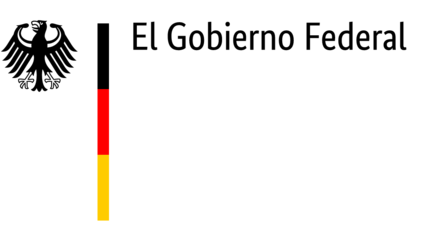
International students and scientists at German universities
Germany remains popular with international students
24 July 2018 - When it comes to international students, universities in Germany are in demand. According to official figures, the number of international students in Germany from abroad rose in 2017 to just over 359,000. Some 265,484 of these students are among what are known in Germany as Bildungsausländer/Bildungsausländerinnen1, non-nationals who acquired their higher education entrance qualifications outside Germany and who have left their home country to pursue a degree in Germany. This means that overall, the joint federal and Länder goal of attracting 350,000 foreign students to be trained at German universities by 2020 has already been met.
The largest group of non-nationals with foreign entrance qualifications comes from China – one in every eight (13.2%). The second largest group is students from India (5.8%), followed by Russia (4.3%), Austria (4.0%), Italy (3.2%) and Cameroon (2.8%). Almost half of this group of non-nationals come from countries outside the EU.
International reputation of German universities
German university degrees enjoy a high international reputation among international students. For 78%2 of non-nationals with foreign entrance qualifications, this was an important factor in their decision to follow a course of university studies in Germany. At the same time, international students also value the affordability of studying at a German university – especially compared to other, much more expensive study locations such as the US or Britain.
The level of satisfaction with the way in which courses are organised in Germany is also reflected in the fact that more and more international students are going on to successfully complete their degrees. According to the current Wissenschaft weltoffen3 (Academia – Open to the world) report, in recent years, the number of international graduates has risen by just under a third: while 38,332 international students gained degrees in Germany in 2011, in 2016 this figure had climbed to 49,112.
Good prospects after graduation
Other important factors in the decisions of non-nationals to study in Germany are career and residency prospects once university courses are over. Around two thirds of foreign students were already interested in working in Germany after graduation before they started their degree in the country.4
Not only does the German labour market offer good prospects for these graduates, but Germany’s residence regulations are also most favourable here: non-nationals who gain their degree at German universities can normally remain in Germany for up to 18 months after graduating to look for a job that matches their qualifications. As soon a suitable job has been found, they can apply for a residence permit or an EU Blue Card, granting them continued residency. Holders of the latter can even apply for a settlement permit after 33 months.5 If successful, they then receive an unlimited residence permit enabling them to stay in Germany permanently. You can find out more about the prospects for international students in Germany on the Make it in Germany website.
German universities attract international academics
The internalisation of German universities not only relates to the origin of the students but also to that of teaching and research staff. In 2016, for example, more than 45,000 international researchers were employed at German universities. This represents a rise of 6% over the previous year. International academic staff are mainly recruited from Western Europe (36%) as well as from Central and South-Eastern Europe (14%)6.
Non-nationals who come to work at German universities are not only motivated by an interest in academic exchange, but are also drawn by other advantages that German institutions have to offer. These include specific working conditions, the research infrastructure available and the university’s reputation. German universities also pursue various strategies to attract top academics from abroad. The aim in these is not only to help reduce formal hurdles, but also to provide information specific to German universities as a whole. Providing practical support for international staff once they are on location and establishing a culture of welcome are also vital elements in making Germany attractive for foreign research staff.
Sources and notes:
[1] Among international students, a distinction is made between foreign nationals who acquired their higher education entrance qualifications in Germany (Bildungsinländer) and those who have achieved these outside of Germany (Bildungsausländer). Whilst Bildungsinländer have usually lived in Germany for a long time before commencing their studies and attended a German school, Bildungsausländer come to Germany mainly for the purpose of studying.
[2] STIBET study/ DAAD (2014): Report on the evaluation of the DAAD’s ‘STIBET I and STIBET III Matching Fun’ programme, https://www.daad.de/medien/der-daad/medien-publikationen/publikationen-pdfs/2014-06_stibet_00_dokmat_bd76.pdf.
[3] The Wissenschaft weltoffen report is published by the German Academic Exchange Service (DAAD) in cooperation with the Hochschul-Informations System GmbH (HIS) (software products and services for universities).
[4] STIBET study / DAAD (2014): Report on the evaluation of the DAAD’s ‘STIBET I and STIBET III Matching Fun’ programme.
[5] Holders of an EU Blue Card with sufficient German language skills (minimum of B1) are eligible to apply for a settlement permit after 21 months.
[6] Source: Wissenschaft Weltoffen 2018 http://www.wissenschaftweltoffen.de/publikation/wiwe_2017_verlinkt.pdf.
Do you have any questions?
Let us advise you on your opportunities to work and live in Germany. Our experts will support you with questions regarding job search, visa, recognition and learning German.
You can find out more about the various contact options by clicking on one of the icons in the bar below.
